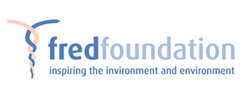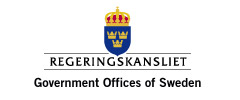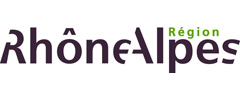WECF Position Paper on Women and Rural Development
“Women and Sustainable Rural Development” of the international workshop of the Networks WECF und UNSER LAND.
07.04.2006 |WECF Press Release
Download the press release.
Fürstenfeldbruck, 19.-22th January 2006
„Build Bridges, to connect people and experiences“, in the age of globalisation, this were the main issues of this meeting for the coordinators.
The networks WECF – Women in Europe for a Common Future- and UNSER LAND, invited partners of 7 nations to an international and intercultural exchange of experiences about issues like, sustainable and ecological agriculture, alternative energy resources and the role of the women in the rural development, into the house of agriculture in Fürstenfeldbruck/Munich. Visits of UNSER LAND farms, experts lessons and working groups to different issues built the central point.
WECF e.V. represents an international working organisation of women, which approach is to jointly implement practical projects and policy influencing activities, always keeping in mind the gender perspective. More then 60 citizen’s organisation from Eastern and Western Europe as well as from Africa and the States, work together on several levels and bring various issues like health, environment and poverty reduction into international forums. Since the Earth-summit in Rio 1992, there is hardly no international relevant conference with the named issues, where WECF didn’t demonstrate, why women are decisive for sustainable development.
UNSER LAND is working regional in the environs of Munich, with the aim, to make people’s responsibility for their basis of life, in the true sense of the word “tasty”. Since more then 10 years men and women undertook to prove successfully, that idea and business, honorary post and professionalism, regionality in times of globalisation, must not be invincible contrasts. Quite on the contrary, they offer a big chance to activate people, mobilize power, realize visions.
Both Networks common is the effort, to save the basis of life for the next generations. „WECF promotes ideas of women for a grandchild-friendly-environment“, so Margriet Samwel, Water expert of WECF.
„Finally I meet all the exotic women, I always have been interested in“, so called a member of the Network UNSER LAND, after the introduction of the women, who came to built bridges and to network themselves.
Networking with such a lot of positive power, is not only playing the main role for most of the women, who joined the Network UNSER LAND, as a topical inquiry showed. The wish to network to the weal of the women, who stand up for a sustainable rural development, was also expressed by the project partners of WECF. The women of Armenia, Germany, the Netherlands, Spain and the Ukraine, reported about their work, their engagement and developed common solutions for future perspectives for women in rural areas.
Above all, the participants agreed with, that women even move a lot in rural areas and often are the motor of sustainable development. But once more it becomes clear, on the basis of the UNSER LAND inquiry too, that women in rural areas collaborate very engaged in a lot of projects, but still are underrepresented in the decision making committees. In fact, the steering committees and the advisory boards of the 10 solidarity communities of UNSER LAND are composed of 60% men and 40% women. Opposite to this, the salaried jobs are occupied with 62% women and 38% men. The honorary activities are made by women even in an essential higher part. Also the participation in the inquiry was 60% women and only 40% men.
It becomes also very clear, that „Rural Development” not only concerns rural women. „Rural Area“ is not only made of Agriculture and Farmers. Women, who engage them in this issue, are interested also in healthy nutrition, direct marketing of food or tourism in rural areas. They advocate for regional economic- and life cycles, for saving their life resources, for customers information, for fair prices, healthy products an much more. They come form very different social scopes, look very consciously to the reference to agriculture, want to promote and safe rural and regional structures. They appreciate the possibility to deal with various issues and contact people from most different working- and living scopes. They see in the rural area not only various possibilities for the (re-)entry in the professional life, but also a very “meaningful field of activity“ for retirement.
The most named „difficulties“ for the daily (regional) work, are: the absent (serious) broad political support/appreciation, the difficult acquisition of funding at all levels, the huge number of bureaucratic hurdles and regulations, the still ruling mentality „as cheap as possible”, too much “Globalisation and Monopolisation”, missing network, too less promoting of good examples.


































